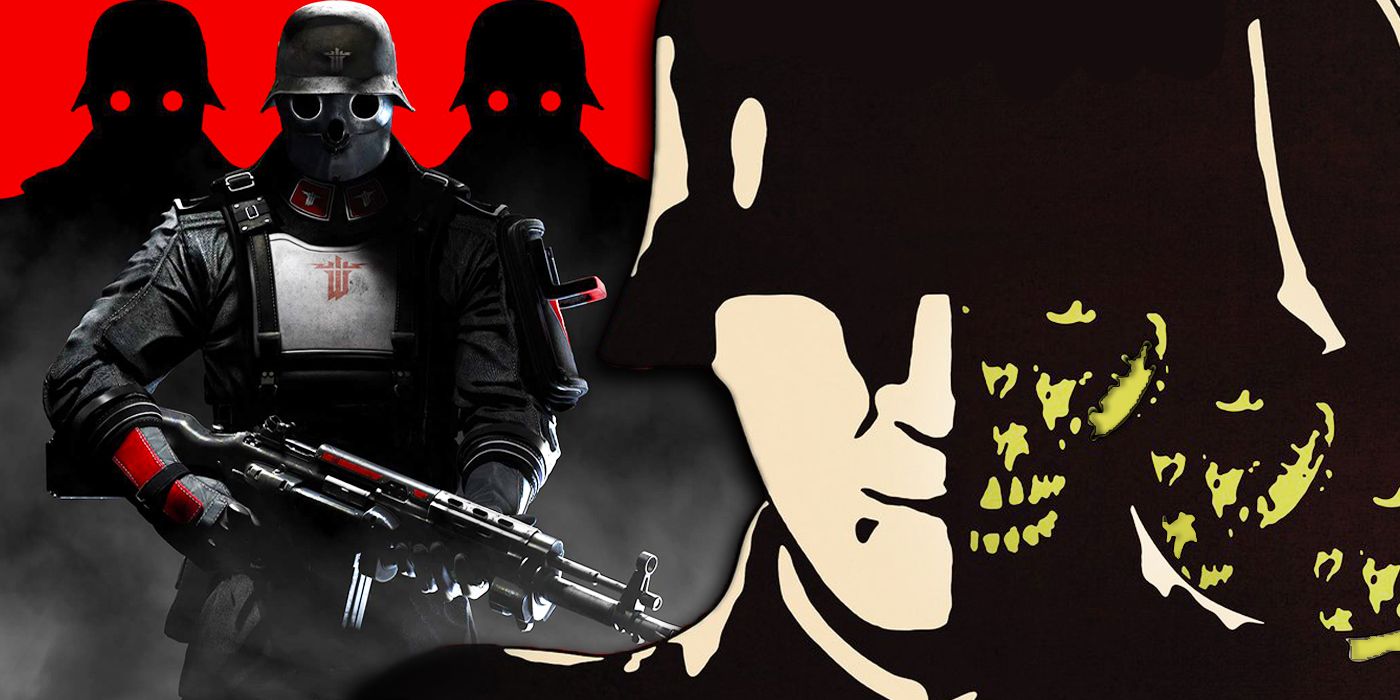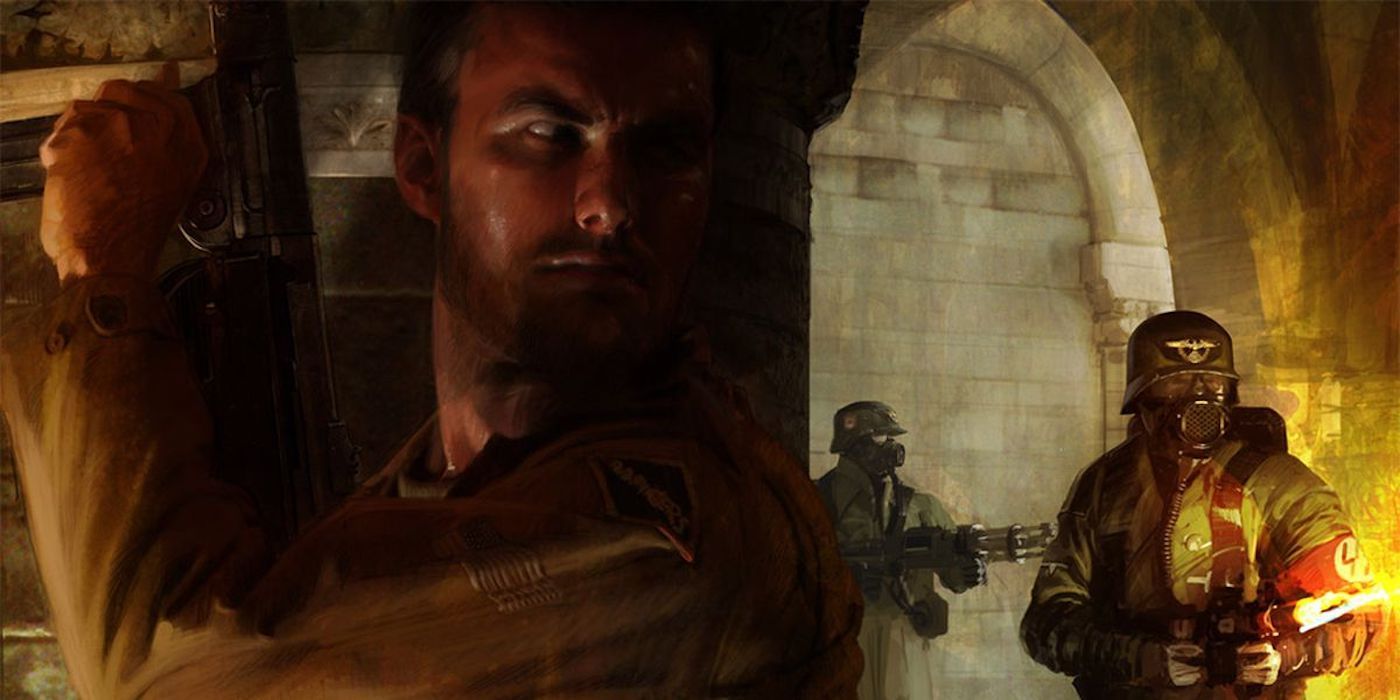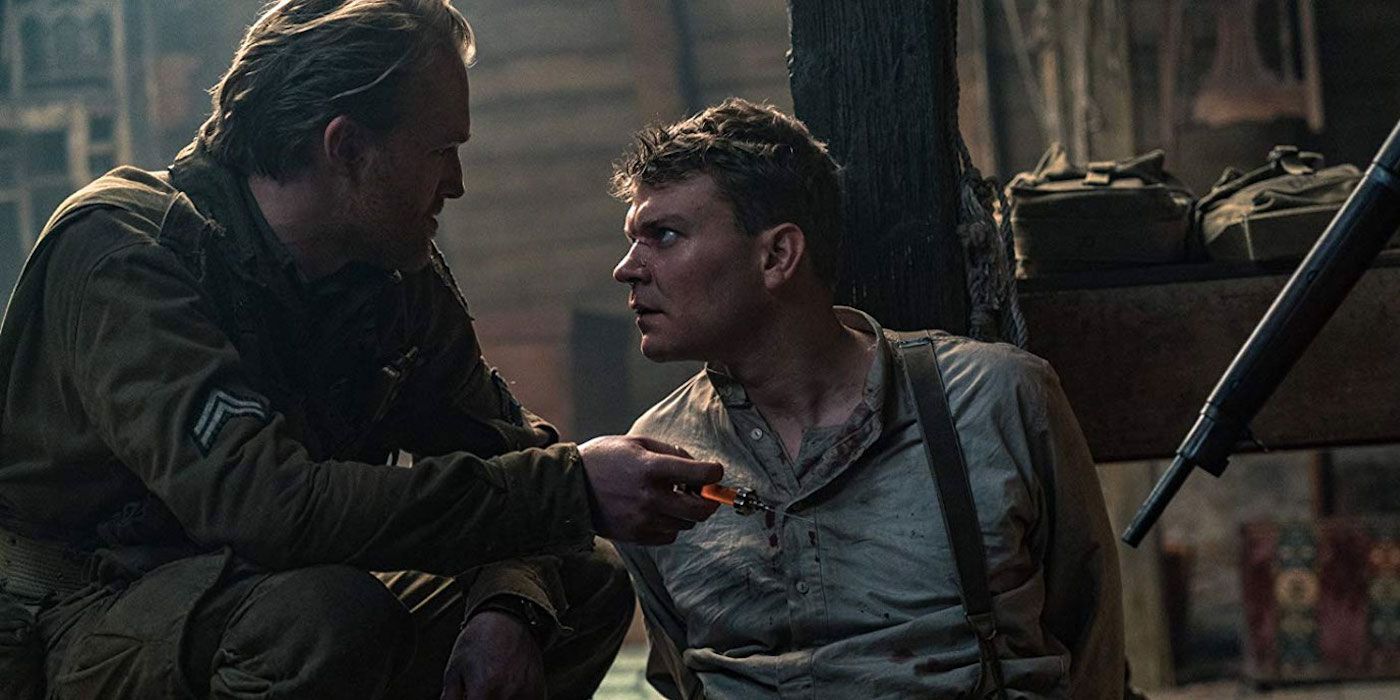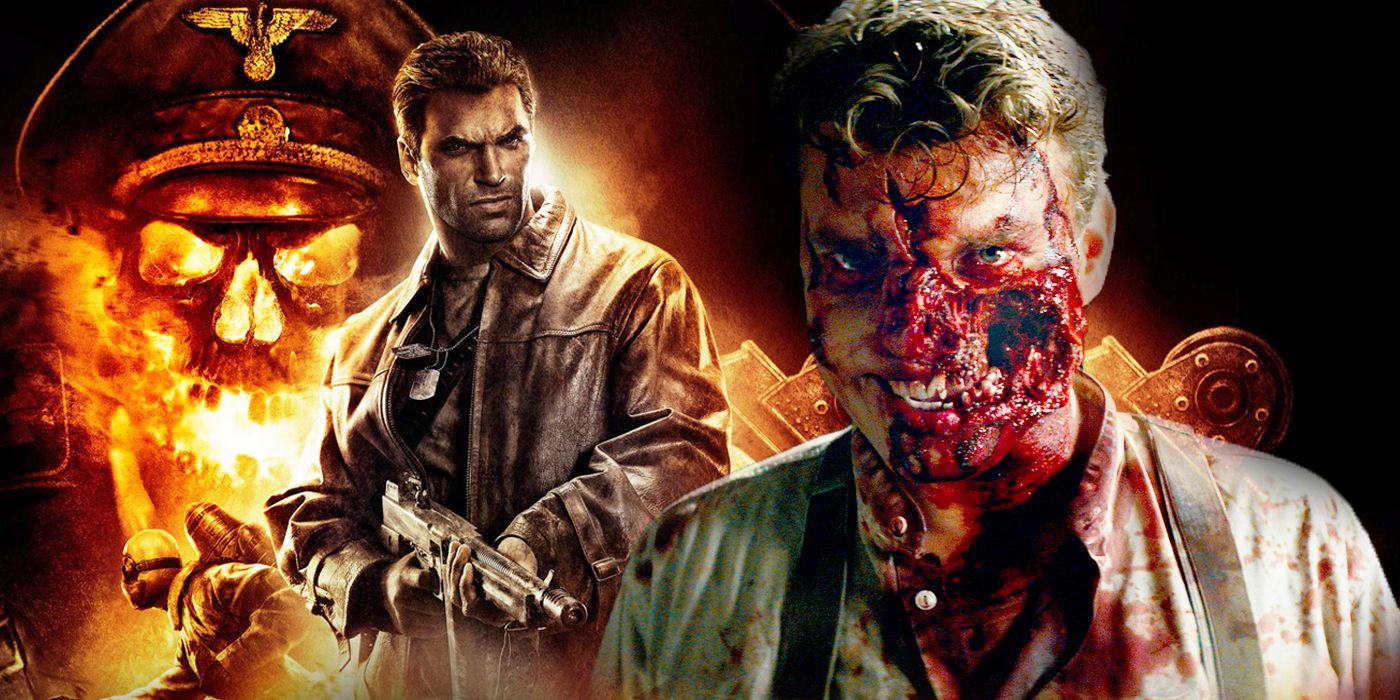SPOILER WARNING: The following article contains major spoilers for Overlord, in theatres now.
Director Julius Avery's Overlord benefits from many different cinematic elements, establishing itself mostly as an action spy movie with American paratroopers infiltrating and trying to destroy a Nazi base in World War II. Of course, it's also a horror flick, with the base actually being a secret lab where Germans create an army of zombies.
RELATED: Overlord Could Have Been the Perfect Nick Fury Origin Movie
However, Overlord also takes a page from a cult video game franchise, and exists now as the Castle Wolfenstein movie we never knew we desperately needed.
Castle Wolfenstein kickstarted the Wolfenstein franchise in 1981, with a premise that's more or less the same as Overlord. Developed by Muse Software, it focused on an American soldier stealing secret Nazi war plans on their World War II bombing targets, while trying to avoid detection. His job was to sneak out of the castle, using dead bodies as decoys, while disarming and killing hostile guards to slip out of the fortified castle.
Overlord's star, Private Boyce (Jovan Adepo) undergoes the same mission, except the Nazis are operating out of a church. On his first mission, a recon job, he ends up infiltrating the lab and sneaking out with the serum the Germans are using to reanimate the dead, eager to take it back to the Allies so they can understand what they're up against in the war.
RELATED: How Overlord Could Tie Into the Cloverfield Universe
What's even more intriguing is that Overlord also takes cues from the third game in the series, 1992's Wolfenstein 3D, which focused on the Nazis apprehending an American soldier, William "B.J." Blazkowicz, just before D-Day. It's his mission to escape and inform the Allies about "Operation Eisenfaust," which, just like Overlord, is about the Germans creating a mutated army of the undead.
Overlord has a character similar to B.J. in Boyce's commanding officer, Corporal Ford (Wyatt Russell), who also ends up being taken as a prisoner of war, while trying to help Boyce destroy the lab and stop the zombie horde. Except in Ford's case, he doesn't want to tell the Allies of the revival serum the enemy concocted, for fear they'll use it for evil, too.
Lead characters aside, the similarity between this film and the game is obvious in terms of aesthetic. The Wolfenstein franchise -- which continues next year with its next instalment, Wolfenstein: Youngblood -- is all about American soldiers moving in the shadows, in and out of Nazi strongholds, to either destroy it or take integral information back to their superiors.
Sure, the quests are black-ops, but when the going gets tough, the soldiers use guns, grenades, bombs and flamethrowers to kill their enemies, which are all things Ford's company do in Avery's movie.
RELATED: Overlord Sets Up A Sequel In Many Terrifying Ways
Overlord also bears an uncanny resemblance to the late-era Wolfenstein games, such as the 2001 reboot, Return to Castle Wolfenstein, with the American protagonists trying to stop another zombie scheme called "Operation Resurrection."
Its sequel, 2009's Wolfenstein, dug further into the source of the revival serum, focusing on the Nazis mining a secret mineral to create their army. Overlord copies this wholesale by having its German scientists experimenting on minerals from infected French soil (whether it's supernatural or alien, it's never revealed) to give birth to a "thousand-year" army for the Reich.
Ultimately, we didn't ask for a movie revolving around the Wolfenstein franchise, and it doesn't seem likely anyone will be making one anytime soon. However, whether you like it or not, Overlord already covered it.
Directed by Julius Avery with a script by Billy Ray and Mark L. Smith, Overlord stars Jovan Adepo, John Magno, Wyatt Russell, Bokeem Woodbine, Pilou Asbaek, Jacob Anderson and Iain De Caestecker, and is in theatres now.




